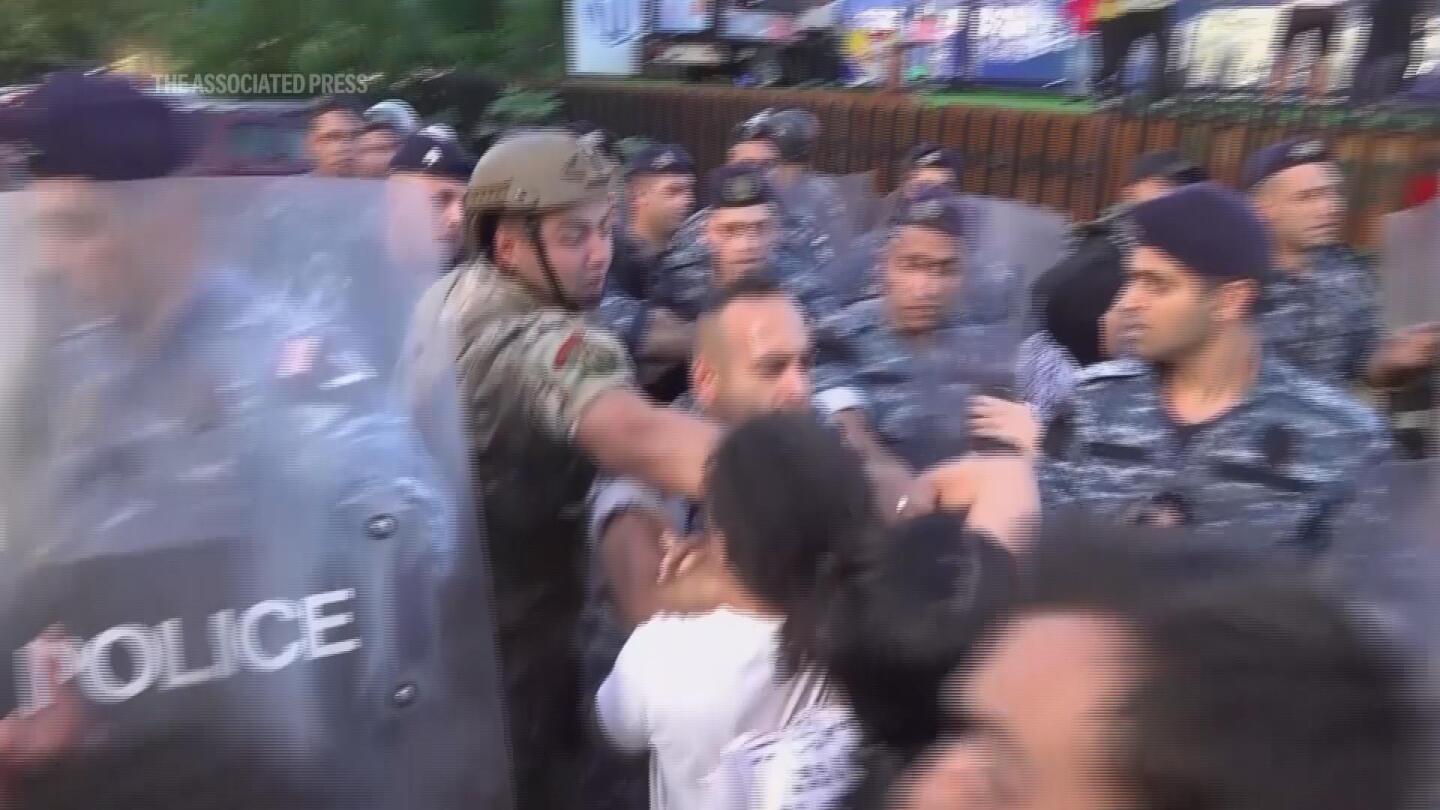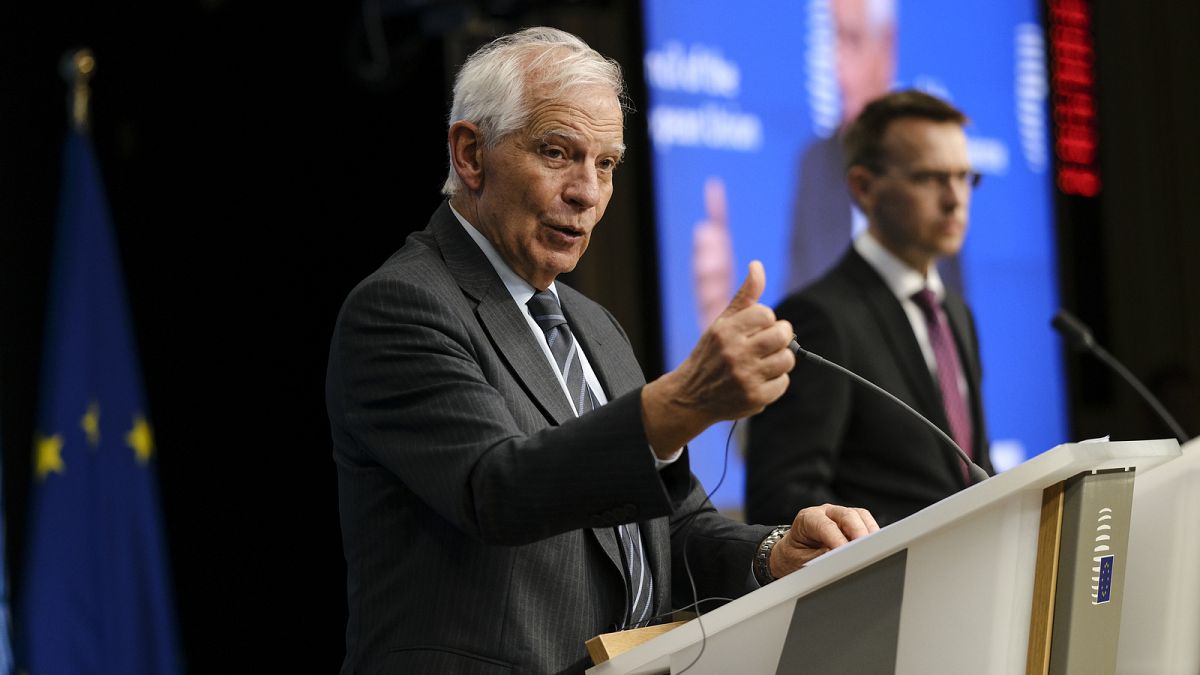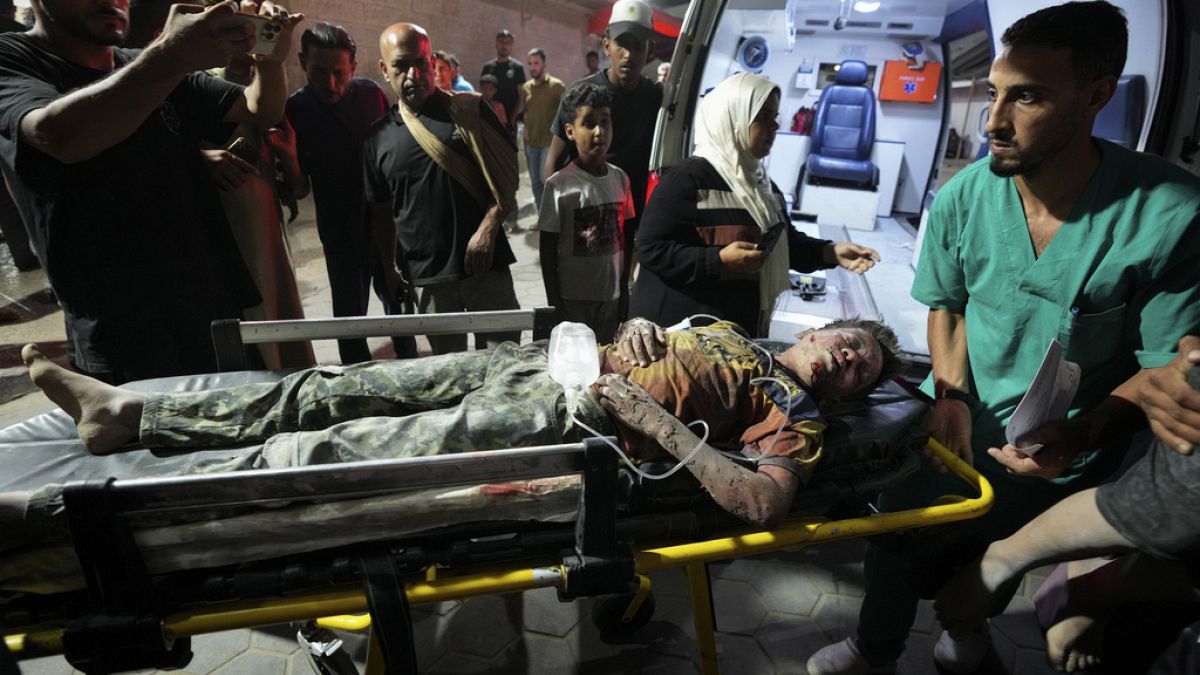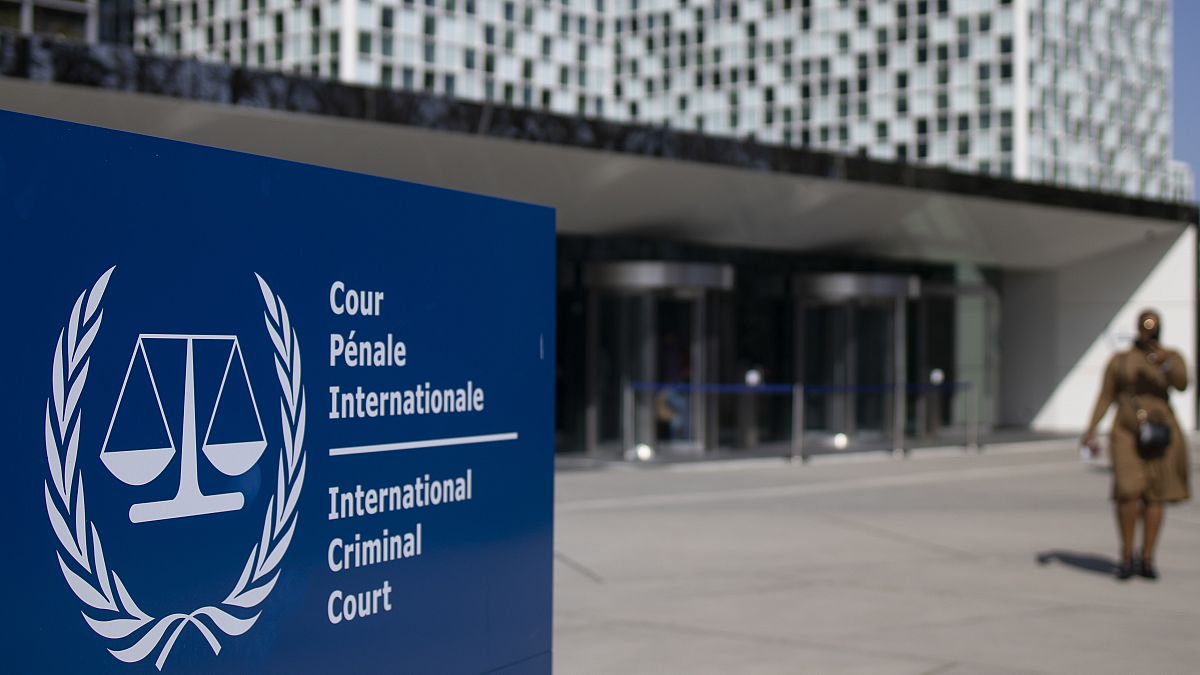World
Gaza aid must ‘scale up enormously’ through more entry points, EU says
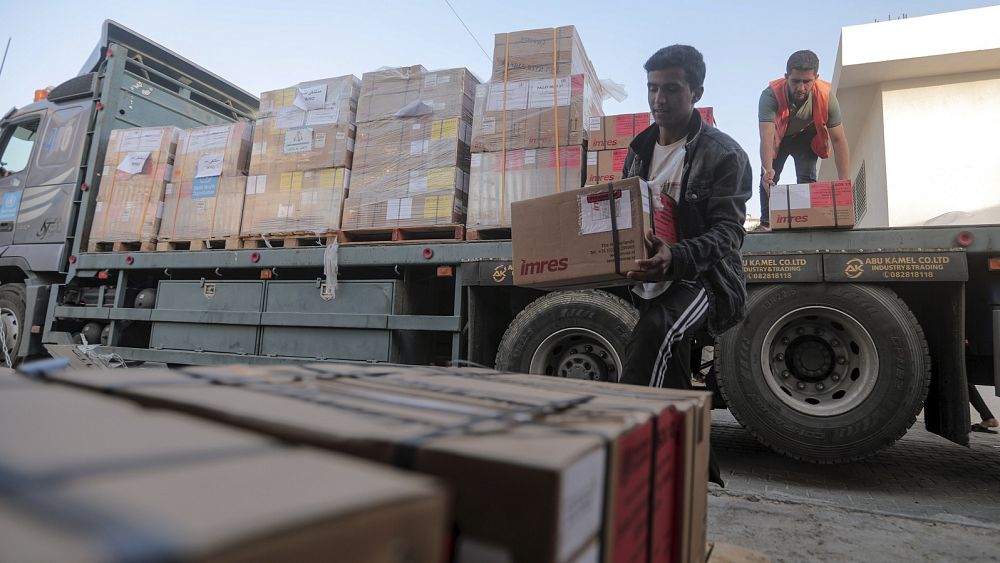
The European Commissioner for Humanitarian Aid warned on Tuesday that support for civilians in Gaza must be stepped up “enormously,” urging all parties to open other entry points into the Palestinian enclave.
“What I want to call for is for safe and unrestricted access, for humanitarian aid to all people in Gaza, wherever they are who need this aid,” Janez Lenarčič told reporters.
His comments, delivered from the Ostend airport in Belgium where an EU-funded plane loaded with humanitarian aid destined for Gaza was preparing to take off, came a month after a devastating terrorist attack by the Hamas militant group resulted in the deaths of 1,400 Israelis with a further 200 kidnapped.
In retaliation, Israel has besieged the Palestinian enclave of more than 2.2 million inhabitants and launched a heavy campaign of bombardments that has killed more than 10,000 civilians, half of them children, according to the local Hamas-led authorities.
It has also led to “a dramatic, catastrophic humanitarian situation in the Gaza Strip,” Lenarčič said. “There is a need to scale up enormously the quantity of humanitarian aid.”
“It means that as many entry points as necessary need to be available,” he also said. “The international law requires from all parties involved in any armed conflict, including this one, to ensure that there is safe and unrestricted access for humanitarian aid.”
“This is the international legal obligations, and that includes opening the necessary number of entry points in order to make sure that there is sufficient quantity of humanitarian assistance being able to enter the Gaza Strip.”
Airbridge to run ‘as long as necessary’
The United Nations estimates that $1.2 billion (€1.1 billion) is required to deliver existing humanitarian services amid the ongoing hostilities. But humanitarian aid has trickled into the Strip at a glacial pace with just over 570 trucks crossing into the enclave since October 21, compared to an estimated 500 doing so daily before the latest escalation.
In response to the crisis, the EU has quadrupled its humanitarian support to Gaza and the West Bank to €100 million this year and launched an airbridge to carry much-needed supplies to Egypt which controls the only open land border crossing into Gaza, Rafah.
The plane leaving Ostend on Tuesday was the eighth one since the start of the airbridge operation three weeks ago and the last one on the current roster. Lenarčič said however that “we will continue with this airbridge as long as necessary.”
The flight was carrying 45 tonnes of medicines, medical equipment and food items.
Pierre Tripont, a logistics manager for the Commission’s Directorate-General for European Civil Protection and Humanitarian Aid Operations told Euronews whatever is sent is first approved by the Egyptian and Palestinian Red Crescent societies.
The Egyptian Red Crescent is the only organisation mandated by Cairo to handle humanitarian aid flowing into the country for Gaza, which they then deliver to their Palestinian counterpart at the Rafah crossing.
“We receive lists of products that are required, and even when we have requests, because we also have (EU) member states coming to us saying ‘we would like to donate this or that type of product’, we communicate this to the Egyptian Red Crescent and the Palestinian Red Crescent to first obtain their approval and validation that these products are indeed required. Then we can send them,” Tripont said.
“The idea is really to be able to create a coordinated flow of products to Gaza and not to clog up logistics areas with products that are not yet required,” he added.
Painful lack of fuel
But one product still not making its way into Gaza is fuel, which Israel is blocking over fears Hamas would use it to power new attacks against the country.
Lenarčič called for this blockade to be lifted, warning that “fuel is desperately needed” in the Gaza Strip to power hospitals, and desalination plants for water and bakeries.
Jamie LeSueur, head of the emergency operations for the International Federation of the Red Cross and Red Crescent Societies, told Euronews that two of the hospitals their NGOs run rely on fuel to operate.
“We’re hearing about patients at risk of being taken off of major life support systems because they don’t have access to fuel. Now, our national society is working extremely hard to maintain and ration, but at the end of the day, without unhindered access, we’re in a lot of trouble,” he said.
Supplying the Al-Quds hospital is also made difficult by its location, in the north of the Strip, which has been the target of most of Israel’s military intervention. Humanitarian trucks, LeSueur said, “have access primarily to the south” and making it to the northern part is ” a major challenge.”
“Ultimately, the roads are inoperable. There are ongoing operations,” he said.
A maritime corridor that would be operated by Cyprus, the closest EU territory to the Gaza Strip, was backed by France and Greece late last month. European Commission chief Ursula von der Leyen said Monday her executive is looking into the feasibility of it.
Lenarčič noted however that while they are indeed “looking with interest” at the idea, “the problem with the maritime corridor is that at the moment there is no functioning port on the Gaza shore.”
“So this would need to be fixed somehow.”

World
Blue Jays pitcher Alek Manoah departs with apparent injury

CHICAGO (AP) — Toronto Blue Jays pitcher Alek Manoah left Wednesday night’s game against the Chicago White Sox in the second inning with an apparent injury.
With two out and a runner on third, Manoah was checked on by manager John Schneider and a trainer after throwing a 91.4 mph sinker to Dominic Fletcher for a ball. The big right-hander then departed after a short discussion on the mound.
There was no sign of any issue on the pitch to Fletcher. The Blue Jays did not immediately announce the reason for Manoah’s departure.
The 26-year-old Manoah is 1-2 with a 3.70 ERA in five starts this season. He was tagged for six runs, four earned, and five hits in 4 2/3 innings in a 6-2 loss at Detroit on Friday night.
Manoah began the season on the 15-day injured list with a right shoulder injury.
___
AP MLB: https://apnews.com/hub/mlb
World
Another US MQ-9 Reaper drone reportedly downed in Yemen
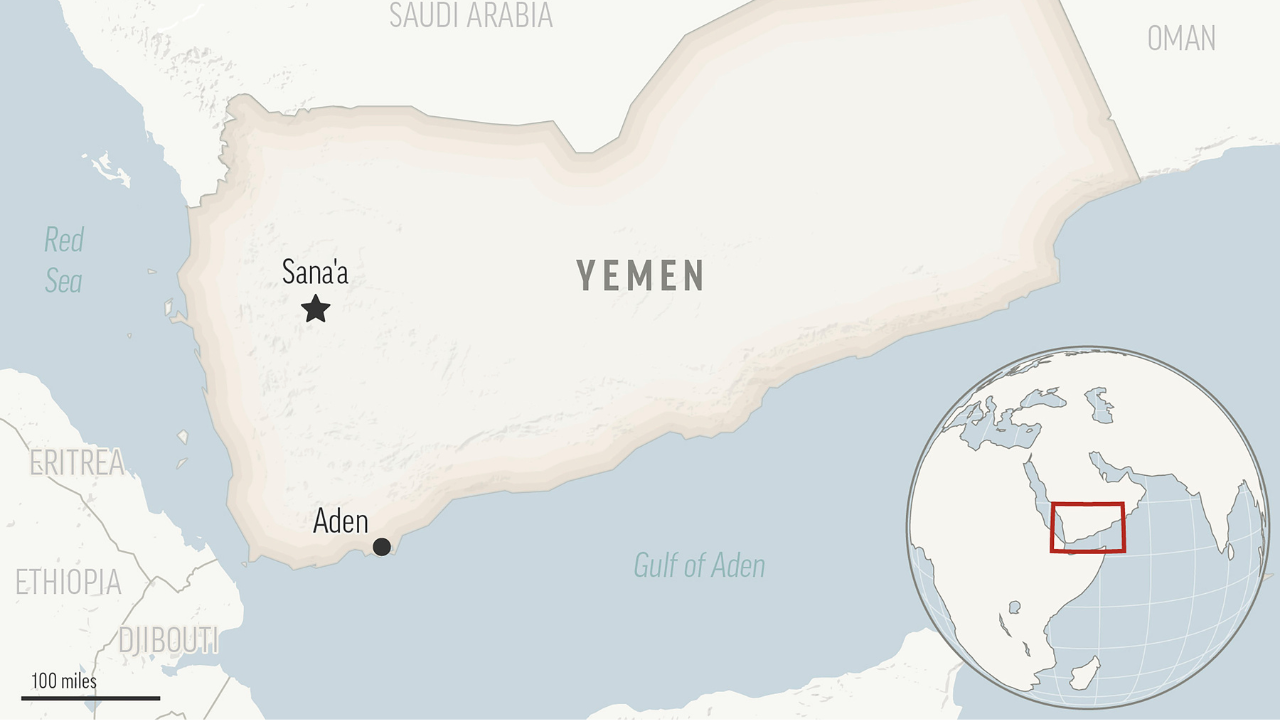
Another U.S. MQ-9 Reaper drone went down in Yemen, images purported to show Wednesday, as Yemen’s Houthi rebels continued attacks on shipping around the Red Sea over the Israel-Hamas war.
The Houthis released footage they said showed the aircraft being targeted with a surface-to-air missile in a desert region of Yemen’s central Marib province. It marked the third-such downing this month alone.
Images analyzed by The Associated Press showed the MQ-9 on its belly in the barren desert, its tail assembly disconnected from the rest of its body. At least one hatch on the drone appeared to have been opened after it landed there, though the drone remained broadly intact without any clear blast damage. One image included Wednesday’s date.
IRAN-BACKED HOUTHI REBELS IN YEMEN CLAIM THEY SHOT DOWN ANOTHER US DRONE AS ATTACKS INTENSIFY
Noticeably, the drone did not appear to carry any markings on it.
Authorities in Marib, which remains held by allies of Yemen’s exiled government, did not acknowledge the drone.
A U.S. defense official, speaking on condition of anonymity to discuss intelligence matters, told the AP that “the U.S. Air Force has not lost any aircraft operating within U.S. Central Command’s area of responsibility.” The official declined to elaborate.
The CIA also is believed to have flown Reaper drones over Yemen, both to monitor the war and in its campaign against al-Qaida in the Arabian Peninsula, Yemen’s local affiliate of the militant group. The CIA declined to comment when reached by the AP.
This is a locator map for Yemen with its capital, Sanaa. (AP Photo)
Located 75 miles east of Sanaa, Marib sits on the edge of the Arabian Peninsula’s Empty Quarter Desert at the foot of the Sarawat Mountains running along the Red Sea. The province has seen U.S. drones previously brought down there, in part because the region remains crucial for the outcome of Yemen’s yearslong war.
Since Yemen’s civil war started in 2014, when the Houthis seized most of the country’s north and its capital of Sanaa, the U.S. military has lost at least five drones to the rebels. This month alone, there’s been two others suspected shootdowns of Reapers that the American military hasn’t confirmed.
Reapers cost around $30 million apiece. They can fly at altitudes up to 50,000 feet and have an endurance of up to 24 hours before needing to land.
The Houthis in recent months have stepped up attacks on shipping in the Red Sea and the Gulf of Aden, demanding that Israel end the war in Gaza, which has killed more than 36,000 Palestinians there. The war began after Hamas-led militants attacked Israel on Oct. 7, killing about 1,200 people and taking some 250 hostage.
The Houthis have launched more than 50 attacks on shipping, seized one vessel and sunk another since November, according to the U.S. Maritime Administration.
Shipping through the Red Sea and Gulf of Aden has declined because of the threat.
On Wednesday, Houthi military spokesman Brig. Gen. Yahya Saree acknowledged the rebels attacked the bulk carrier Laax on Tuesday. Saree also claimed a number of other attacks on vessels that have not reported assaults without offering any evidence to support his claim. Saree in the past has exaggerated Houthi attacks.
World
Israel says war on Gaza likely to last another seven months

Israel’s national security adviser says the continuing war on Gaza is likely to last through the end of the year.
In an interview with Israel’s Kan public broadcaster on Wednesday, Tzachi Hanegbi said “we are expecting another seven months of fighting” to destroy the military and governing capabilities of Hamas and the smaller Palestinian Islamic Jihad (PIJ) group.
His remarks came as Israel finds itself increasingly isolated on the world stage nearly eight months into the assault, with even the United States and other close allies expressing outrage over the civilian death toll.
Hanegbi defended Israel’s ongoing operations in Rafah, on Gaza’s border with Egypt, saying the frontier had become a “smuggling kingdom” since 2007, when Hamas began governing Gaza.
“Every rocket, every explosive device, every shot fired at Israel is because that border was breached,” he said.
Later on Wednesday, an Israeli military spokesman said the army had gained “operational control” over the narrow Philadeplhi Corridor, a buffer zone between Egypt and Gaza that was created as part of the 1979 peace treaty between Israel and Egypt.
“In recent days, our forces have taken operational control of the Philadelphi Corridor,” army spokesman Daniel Hagari said in a televised address.
Egypt has expressed grave concerns about Israel’s Rafah offensive, saying it threatens the peace treaty.
Hanegbi’s remarks raise questions about the future of Gaza and what kind of role Israel will play in it. Already, top ally the US has demanded that Israeli Prime Minister Benjamin Netanyahu produce a postwar vision for the Palestinian territory, and his defence minister and a top governing partner have warned that he must take steps to ensure that Israel does not remain in Gaza indefinitely.
Israel’s assault has already devastated Gaza’s urban landscape, displaced most of the territory’s population and sparked a humanitarian catastrophe and widespread hunger. Israel claims it must dismantle Hamas’s last remaining battalions in Rafah and also said it will seek indefinite security control over the Gaza Strip.
Hamas has rejected any postwar plan that excludes the group, reiterating that it will remain in Gaza.
The Rafah offensive has so far killed dozens of Palestinians as NGOs and professional unions declared Gaza a “famine-stricken” zone.
Recent attacks have struck so-called safe humanitarian zones near Rafah, killing dozes of people, according to Palestinian officials.
Israeli tanks moved into the heart of Rafah city on Tuesday despite an order from the International Court of Justice for Israel to end its attacks on the area.
Situation ‘getting worse’
Al Jazeera’s Hani Mahmoud, reporting from Deir el-Balah, said that in the central part of Rafah city, there is “a confirmed report of families trapped inside their residential homes, caught in the line of artillery fire”.
Israeli quadcopters had pursued people there, he said, preventing them from evacuating to safer areas.
“From the northeast to the northwest of Rafah, where tent camps have been attacked in recent days, the situation is getting worse by the hour because of the expansive military operations,” Mahmoud said.
“At the same time, nearly all health and public facilities are pushed out of service right now.”
The World Court said Israel had not explained how it would keep evacuees from Rafah safe and provide food, water and medicine. Its ruling also called on Hamas to release hostages taken from Israel on October 7 immediately and unconditionally.
Rafah residents said Israeli tanks had pushed into Tal as-Sultan in the west and Yibna and near Shaboura in the centre before retreating towards a buffer zone on the border with Egypt, rather than staying put as they have in other offensives.
Palestinian health officials said on Wednesday that 19 civilians had been killed in Israeli air strikes and shelling across Gaza.
Health Minister Majed Abu Ramadan urged Washington to pressure Israel to open the Rafah crossing to Egypt for aid supplies, saying that there was no indication that Israeli authorities would do so soon and that patients in besieged Gaza were dying for lack of treatment.
The United States, Israel’s closest ally, reiterated its opposition to a major ground offensive in Rafah on Tuesday while saying it did not believe such an operation was under way.
The armed wing of Hamas and that of its ally PIJ said they confronted invading forces in Rafah with antitank rockets and mortar bombs and blew up explosive devices they had planted, resulting in numerous successful hits.
The Israeli military said three Israeli soldiers were killed and three badly wounded.
In the nearby city of Khan Younis, an Israeli air strike killed three people overnight, including Salama Baraka, a former senior Hamas police officer, medics and Hamas media said. Another killed four people, including two children, medics said.
In northern Gaza, Israeli forces shelled Gaza City neighbourhoods and moved deeper into Jabalia, where residents said large residential districts were destroyed.
More than 36,000 Palestinians have been killed in Israel’s Gaza offensive, according to health officials.
-

 Culture1 week ago
Culture1 week agoFrom Dairy Daddies to Trash Pandas: How branding creates fans for lower-league baseball teams
-

 World1 week ago
World1 week agoPanic in Bishkek: Why were Pakistani students attacked in Kyrgyzstan?
-

 News1 week ago
News1 week agoRed Lobster files for bankruptcy after missteps including all-you-can-eat shrimp
-

 News1 week ago
News1 week agoThe states where abortion is on the ballot in November : Consider This from NPR
-

 Politics1 week ago
Politics1 week agoMichael Cohen swore he had nothing derogatory on Trump, his ex-lawyer says – another lie – as testimony ends
-

 Movie Reviews1 week ago
Movie Reviews1 week agoMai Movie Review: Emotionally powerful lead performances in this sensitive and heart-breaking romantic film
-

 News1 week ago
News1 week agoCity of Kyle falls short of ‘Kyle’ world record
-

 Politics1 week ago
Politics1 week agoAnti-Israel agitators interrupt Blinken Senate testimony, hauled out by Capitol police
